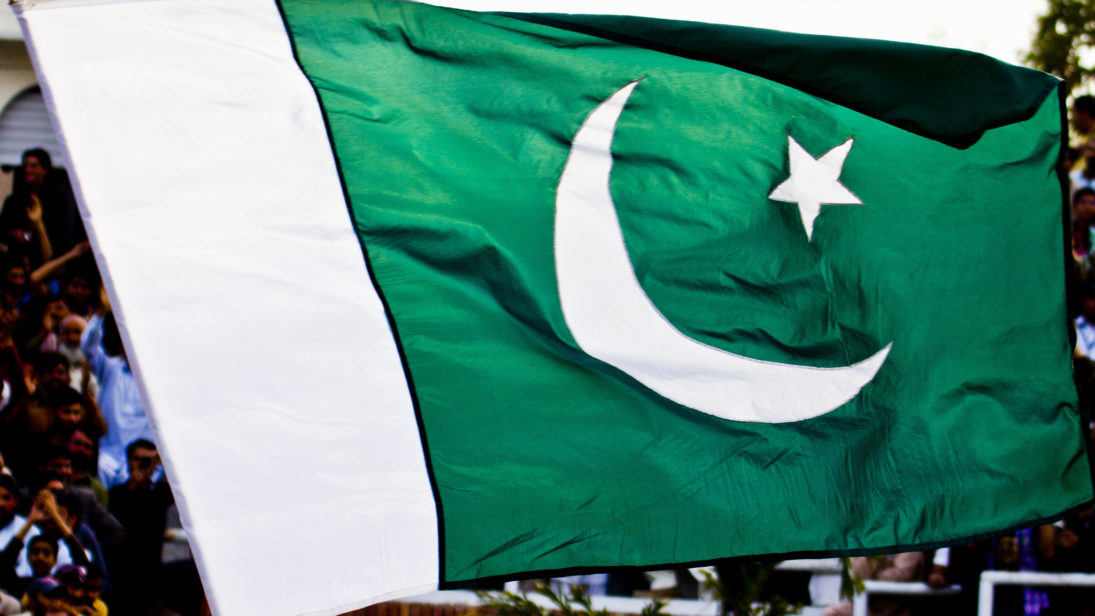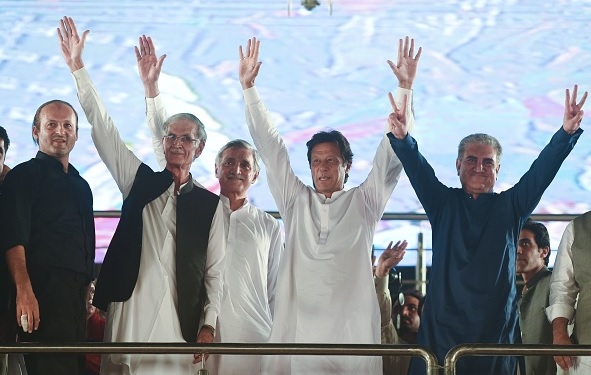
It’s election season in Pakistan and the stakes are high. The results will eventually depend upon which party wins Punjab, the country’s most populous province, and the impact of judicial activism on the populace.
Electoral Environment
Central to the upcoming elections are developments that are likely to have a huge bearing on democracy in Pakistan and could define the future course of the country. Firstly, in order to hold electoral candidates accountable, the judiciary has mandated that to be able to contest elections, each of them will have to declare in an affidavit their educational qualifications, income tax returns, any criminal history, or whether they hold dual citizenship, and furnishing incorrect information would result in contempt of court proceedings against them. Secondly, showing zero tolerance for corruption, the courts sentenced former Prime Minister Nawaz Sharif to 10 years in prison due to his involvement in the Panama Papers scandal–he had already been disqualified earlier from holding office in Pakistan or heading a political party. His replacement, Shahid Khaqan Abbasi, has also been barred from contesting elections for concealment of facts. Thirdly, considerable emphasis has been laid upon the timely printing of ballot papers and delimitation of constituencies i.e. the demarcation of boundaries for electoral precincts across Pakistan, which will ensure the process of voter registration and casting of votes occurs without delay. And finally, in terms of security, section 144 of the Constitution is to be imposed in Punjab to prevent any law and order situation from breaking out during polling in the province. These efforts will collectively ensure that electoral candidates have a clean record and that elections are held on time and are free and fair.
Election Challengers
As it stands, the Pakistan Muslim League-Nawaz (PML-N)’s traditional stronghold in Punjab remains largely unchallenged by the opposition, namely the Pakistan Tehreek-e-Insaf (PTI) or the Pakistan People’s Party (PPP). In Pakistan, Punjab is the most pivotal province since it is the most populous and any party that manages to gain hold of the province is likely to win the election because it contributes the most number of seats to the national assembly–183 out of a total of 342. Of these 342, 272 are directly elected members while 70 are reserved for women and religious minorities. The PML-N managed to win comprehensively in 2013 by retaining 166 seats in the country overall and over 78 percent of those in Punjab. With regard to this election, some opinion polling conducted between June 13 and July 4 showed the PML-N ahead of other parties in the electoral race but these numbers are likely to decline after Sharif was arrested and handed a 10-year sentence over non-disclosure of assets beyond his income.

The main challenger for the ruling government continues to be the PTI, which has generated support by championing the cause of abolishing corruption and highlighting the lack of a basic economic plan provided by its opponents. Ex-cricketer and PTI chief Imran Khan’s popularity has increased following his role in pursuing the Panama Papers corruption case against the former prime minister and his family, which has established his image as a politician who strives against the odds to change the status quo.
The leftist PPP has failed to curb corruption and address basic needs such as providing health care, water, and sanitation in their traditional stronghold of Sindh, where the frustration of Lyari residents is evident. Further, the party’s tendency towards dynastic politics, with the retention of Asif Ali Zardari and the chairmanship of Bilawal Bhutto, has resulted in greater skepticism among the masses about the party. PPP-affiliated appointments in the police force further blunt their popularity, as the Sindh police force is infamous for widespread corruption. These issues are likely to hamper the possibility of a victory for the PPP in the upcoming elections. Additionally, these weaknesses of the PPP are being exploited by the PTI, which champions the cause of justice and de-politicization of public institutions, as well as by the ethno-centric Muttahida Qaumi Movement, headquartered in Karachi.
Scenarios
If the PTI secures a majority in the upcoming elections, its major challenge will likely be revamping the bureaucracy, which is a tedious and cumbersome procedure in Pakistan, given the institution’s history of corruption and failure to deliver. To its credit, the PTI is known for its performance in the Khyber Pakhtunkhwa (KP) province although it has its share of critics as well. The PTI’s education reforms in KP as well efforts towards improving service delivery and enacting legislation to improve accountability have been positives. Reforming the bureaucracy in Islamabad, however, will be more difficult, especially as a number of PTI ministers stand accused of corruption. A further obstacle to the PTI’s future in politics remains Imran Khan’s lack of experience in ruling the country at the national level. Despite this, the PTI shows promise as it has indicated its willingness to take on challenges others have tended to shy away from.
In the wake of a potential PML-N victory, much of the developments will remain the same although there is likely to remain constant pressure from the judiciary to ensure that corrupt elements are held accountable. The PML-N will likely continue to champion the cause of economic development despite failing to curb sovereign debt or to account for misappropriation of funds. As it stands, the current PML-N government can boast of inroads made through the China-Pakistan Economic Corridor (CPEC), which it has championed, as well as enhanced infrastructure around Punjab and the opening of a new airport in the capital city along international standards, in addition to other development projects, which it will likely continue to uphold.
Why Elections Matter
Whatever the outcome, this election is an opportunity for the average voter to not only decide the future economic trajectory and course of governance in the country but also preserve the state of democracy in Pakistan. Voters in Pakistan so often become the victim of clientele politics or power play between institutions. This exercise of their fundamental rights, to ensure only the second every democratic transition of power in the country, is thus powerful and pivotal.
Editor’s Note: As Pakistani voters head to the polls on July 25 in what will be the second time in the country’s history that one civilian government will transfer power to another, SAV contributors Umair Jamal, Farhan Siddiqi, Rizwana Abbasi, and Hamzah Rifaat assess the likely outcome, its impact on Pakistan’s domestic economic agenda and foreign policy, and what role key stakeholders such as the military and the religious groups may play in the process. Read the entire series here.
***
Image 1: Imtiaz Ahmed via Flickr
Image 2: Arif Ali/AFP via Getty Images


